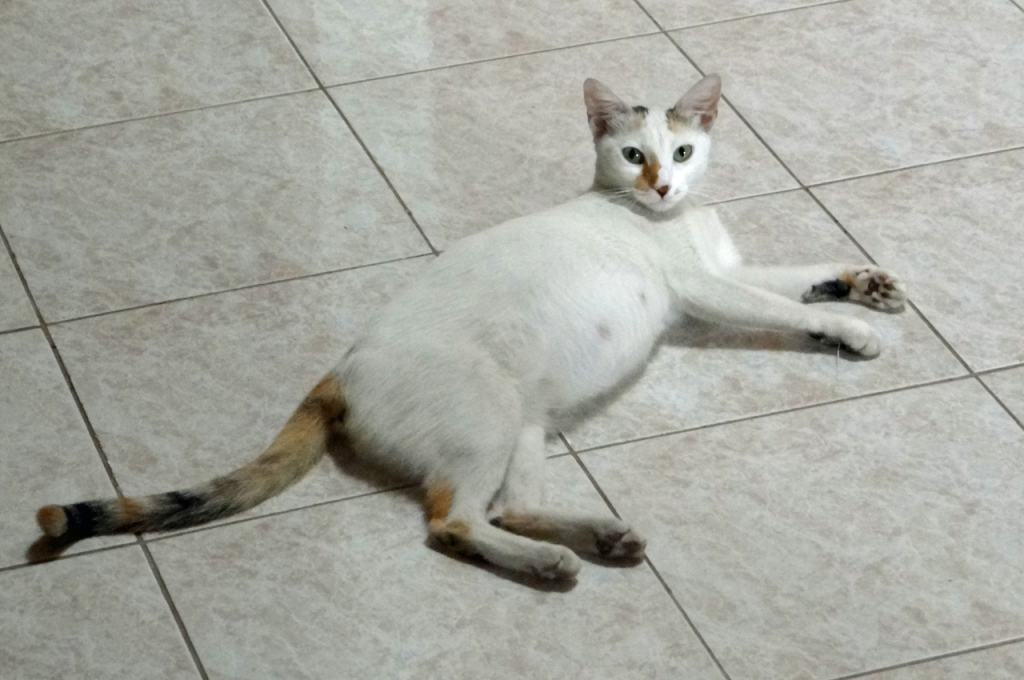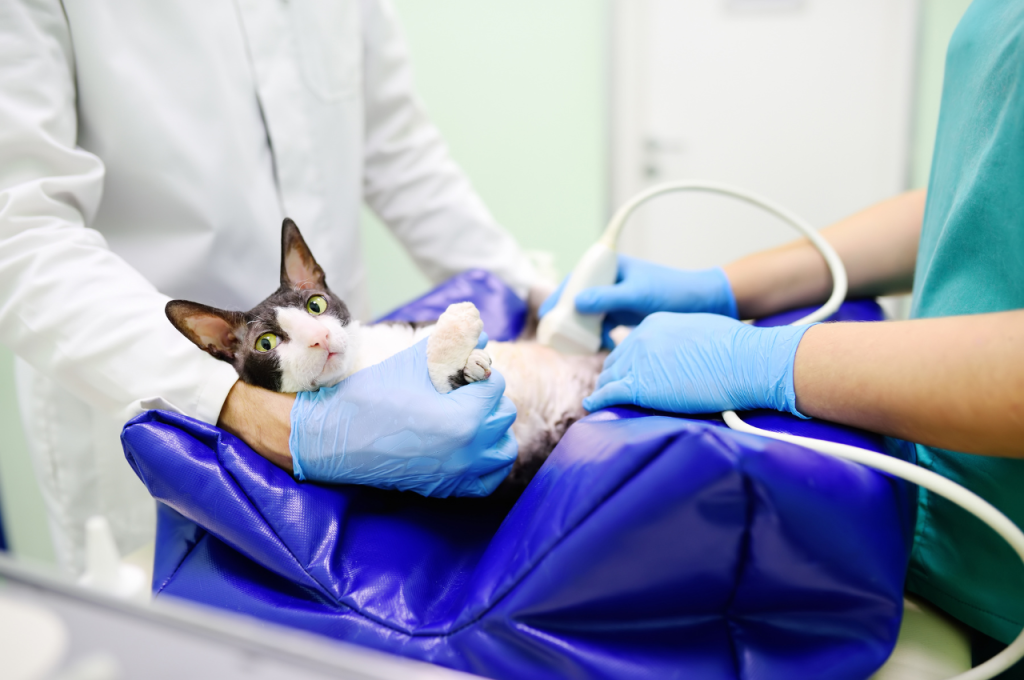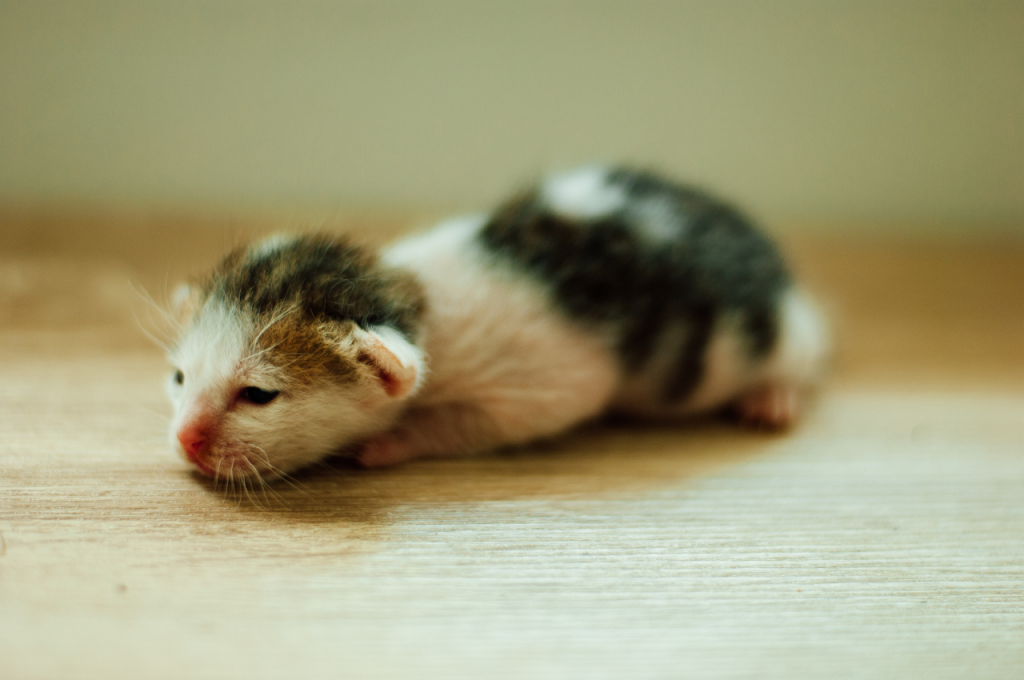A cat is pregnant for an average of 63-65 days. During this time, she will go through several stages of pregnancy which include the embryonic stage, fetal stage, and finally the birthing stage.
Cat owners must provide proper care for their cats during this time to ensure a healthy pregnancy and delivery. This includes a balanced diet, regular vet visits, and a comfortable and safe environment for the soon-to-be mother cat.
Understanding the signs of pregnancy and what to expect during each stage can also help in providing the necessary care for the pregnant cat. We will delve into the various stages of feline pregnancy and provide tips on how to support your cat through this exciting journey.
Signs of A Pregnant Cat
A pregnant cat is an exciting addition to any household. However, as a pet owner, it’s important to know just how long your cat will be pregnant and what signs to look out for. This will help you anticipate and prepare for the new arrivals. In this article, we will focus on the different signs of a pregnant cat.

Changes in Behavior
A major indication of a pregnant cat is changes in her behavior. She may become more affectionate or even less social than usual. You may notice her sleeping more than usual or even hiding and seeking out quiet spaces to rest. Pregnant cats may also become more vocal or meow excessively.
They may display a decrease in appetite or become picky eaters. Some may even experience morning sickness, making them intolerant to certain types of food. Additionally, a pregnant cat may display a change in litter box behavior, such as going outside the litter box or refusing to use it altogether.
Physical Changes
A pregnant cat’s physical appearance will change as her pregnancy progresses. Her nipples may become enlarged, discolored, or may even produce a clear fluid. You may also notice that her abdomen appears to be swelling or that she may even gain weight. Some pregnant cats may also experience a change in their coat’s texture or even shedding more often than usual.
You can also feel for fetal movement during the latter stages of pregnancy. However, it’s important to leave this to the professionals or your veterinarian. Additionally, as your cat’s pregnancy reaches its full term, she may become restless and begin seeking out a warm, safe place to give birth.
Overall, understanding the signs of a pregnant cat is essential to keeping both your pet and her offspring safe and healthy. As a pet owner, you should provide your pregnant cat with the necessary attention, care, and love she needs during this exciting time.
Length of A Cat’s Pregnancy
A cat’s pregnancy typically lasts around 63 to 65 days, which is about 9 weeks. During this time, it is important to provide proper care and nutrition to ensure a healthy pregnancy and birth.
Cats are adorable creatures. In case you own a cat, then the thought of her being pregnant may be exciting but it can also make you anxious. Are you wondering how long your cat will be pregnant? The length of feline pregnancy varies from one cat to another. In this post, we will discuss the different stages of pregnancy and how long they last.
Defining Gestation
Gestation is the period of development from fertilization to birth. In cats, gestation typically lasts between 60 to 67 days. For comparison, the human gestation period is 280 days (40 weeks). Generally, 63 days is considered the average length of pregnancy.
Average Pregnancy Timeline
Let’s break down the average pregnancy timeline of a cat. The first stage of pregnancy, which lasts approximately 2 weeks, is the fertilization stage. During this period, the fertilized egg migrates to the uterus and starts to divide until it forms a blastocyst. The second stage, which lasts around 4 weeks, is the embryonic stage.
During this period, the embryo develops into a fetus. At 4 weeks, the fetus’s bones start to calcify. The third stage of pregnancy, which lasts roughly 1-2 weeks, is known as fetal maturation. It is during this period that the fetus develops eyes, fur, and claws.
Finally, the last stage, which lasts roughly 2 weeks, is the delivery stage. It is during this stage that the mother will go into labor and give birth to her kittens.
Variations in Pregnancy
As we mentioned earlier, the length of feline pregnancy can vary from 60 to 67 days. The number of kittens a cat is carrying also affects the length of her pregnancy. If a cat is carrying a larger litter, the pregnancy may last a few extra days. Additionally, the age and health of the cat can also affect the length of pregnancy.
Caring for A Pregnant Cat
Cats typically have a gestation period of around 63-65 days or approximately 9 weeks. During this time, proper care is essential to ensure a healthy pregnancy and safe delivery for both the mother and her kittens.

A pregnant cat requires proper care and attention to ensure a healthy pregnancy and safe delivery. As a responsible cat owner, it is your job to provide an environment that is conducive for her to carry and deliver her kittens. This article will provide an in-depth guide on caring for a pregnant cat with a focus on proper nutrition, physical check-ups, and preparing for kittens.
Proper Nutrition
During pregnancy, a cat’s nutritional needs increase, and it is essential to provide her with a balanced diet that meets these requirements. Feeding her high-quality, protein-rich food is crucial for the growth and development of her kittens. Additionally, supplementing her diet with vitamins and minerals is necessary to ensure her health and that of her unborn kittens.
To make sure that the cat does not become overweight, it is advised to feed her multiple small meals throughout the day. Also, ensure that she has access to clean water at all times to keep her hydrated.
Physical Check-ups
Regular vet check-ups are essential during pregnancy to ensure that the cat and her kittens are healthy. It is recommended to schedule a pre-pregnancy check-up to ensure that she is fit for breeding. During the pregnancy, the vet will carry out routine physical examinations to monitor the cat’s health and the development of her kittens. They will also perform ultrasounds to determine the number and size of the kittens. If you notice any unusual behavior or symptoms from the cat, it is essential to contact your vet immediately. These may include a lack of appetite or energy, discharge, or bleeding.
Preparing for Kittens
Preparing for the kittens involves creating a comfortable and safe environment for the mother and her newborns to thrive. This may involve setting up a quiet and peaceful nesting area, providing a litter box, and ensuring that the mother and kittens do not come into contact with other pets.
It is also important to have emergency supplies on hand, including towels, scissors, and clean string, in case of a difficult delivery. Having a vet’s contact information readily available is also necessary in case of an emergency.
Giving Birth and Raising Kittens
It is important to know how long a cat is pregnant and what to expect during the process. Cats are usually pregnant for an average of 63-65 days, but it can vary from 58-72 days. As a responsible owner, you should prepare to assist your cat in giving birth and take care of the newborn kittens.
Signs of Labor
Before giving birth, a cat will show some signs of labor. This includes restless behavior, nesting, and disinterest in food. You may also notice the cat licking her genital area to keep it clean before the delivery.
Helping with Delivery
If your cat is struggling or if you notice any difficulties during the delivery process, seek veterinary assistance immediately. However, if everything seems normal, try to stay calm and give the cat some privacy. It is important to make sure the newborn kittens are breathing and seeking milk from their mother.
Caring for Newborn Kittens
After giving birth, your cat will need some additional care and attention. Make sure that the area where the cat gives birth is clean and dry. Provide food and water for the cat and keep the area quiet and free from disruptions. You should also monitor the newborn kittens closely for the first few weeks, especially their weight and feeding habits.

- It is recommended to consult a veterinarian to determine the appropriate nutrition for nursing cats.
- In case the mother cat is unable to nurse her kittens, you can feed them with a milk formula using a bottle or a syringe.
- Make sure the kittens are warm and comfortable, and keep them away from other animals or young children.
By following these guidelines, you can ensure that your cat’s pregnancy goes smoothly and that she and her kittens remain healthy and happy.
Frequently Asked Questions for How Long is A Cat Pregnant
Sure! Here are some questions about how long is a cat pregnant:
Q. How can I tell how far pregnant my cat is?
A. To determine how far along your cat is in her pregnancy, you can take her to a vet for an ultrasound or X-ray. This will enable you to see the number of fetuses and estimate the stage of gestation. Signs such as weight gain, nipple growth, and nesting behavior may also hint at how far along your cat is.
Q. How many kittens will my cat have the first time?
A. Cats can have anywhere from one to eight kittens in their first litter, with the average being four. It ultimately depends on various factors such as the cat’s age, breed, health, and mating history. Consult with a veterinarian for more specific information about your cat.
Q. How do I know when my cat is about to give birth?
A. To tell if your cat is about to give birth, watch for physical signs like restlessness, nesting behavior, a decrease in appetite, and discharge from the vulva. Additionally, take her rectal temperature regularly, and when it drops below 100°F (37.
8°C), prepare for the delivery. Ensure she has a comfortable, quiet space to give birth and monitor her closely during labor.
Conclusion
Based on the information provided, a cat’s gestation period lasts around 63 to 65 days. However, it’s essential to remember that every pregnancy is unique, and each cat may have their gestation period. If you’re unsure or concerned about your cat’s pregnancy, seeking advice from your veterinarian is always recommended.
Ensuring your cat receives proper care throughout their pregnancy will increase the likelihood of a healthy litter of kittens.
